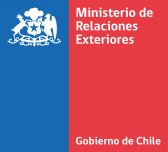Discriminated and made vulnerable: Young LGBT and intersex people need recognition and protection of their rights International Day against Homophobia, Biphobia and Transphobia
GENEVA (13 May 2015) – Speaking ahead of the International Day against Homophobia, Biphobia and Transphobia, a group of United Nations and international human rights experts* call for an end to discrimination and violence against lesbian, gay, bisexual, transgender and intersex young people and children.
The UN Committee on the Rights of the Child, a group of UN human rights experts, the Inter-American Commission on Human Rights, the Special Rapporteur on Human Rights Defenders of the African Commission on Human and Peoples’ Rights, and the Commissioner for Human Rights of the Council of Europe urge Governments worldwide to protect these young people and children from violence and discrimination, and to integrate their views on policies and laws that affect their rights.
“Around the world, children and young people who are lesbian, gay, bisexual, transgender (LGBT) or intersex, or seen as such, still face stigma, discrimination and violence because of their perceived or actual sexual orientation and gender identity, or because their bodies differ from typical definitions of female or male.
Violence and discrimination against LGBT and intersex children and young persons take place at home, in schools and in institutions. LGBT young people too often face rejection by their families and communities who disapprove of their sexual orientation or gender identity. This can result in high rates of homelessness, social exclusion, and poverty. LGBT children are often bullied by classmates and teachers, resulting in some students dropping out. They may even be refused school admission or expelled on the basis of their actual or perceived sexual orientation or gender identity.
The stigma and discrimination LGBT children and young adults face have a detrimental impact on their self-esteem, and are associated with higher rates of depression and suicide than their peers. Discriminatory attitudes by health professionals and restrictions on access to information also create barriers for LGBT and intersex children and young people to access appropriate and safe health services.
In some countries, young LGBT persons are subjected to harmful so-called ‘therapies’ intended to ‘modify’ their orientation or identity. Such therapies are unethical, unscientific and ineffective and may be tantamount to torture. Young transgender people also lack access to recognition of their gender identity, and are subjected to abusive procedures, such as sterilization or forced treatment.
In addition, intersex children and young people may be subjected to medically unnecessary, irreversible surgery and treatment without their free and informed consent. These interventions can result in severe, long-term physical and psychological suffering, affecting children’s rights to physical integrity, to health, privacy and autonomy and may constitute torture or ill-treatment. States should prohibit such interventions.
Laws that, directly or indirectly, criminalize people on the basis of their sexual orientation or gender identity further exacerbate violence and discrimination. This includes ‘anti gay propaganda’ laws that arbitrarily restrict rights to freedom of expression and assembly and threaten the work of LGBT organizations and human rights defenders. Although it is claimed that these laws protect children, the result is, typically, the exact opposite: they result in violence against children and young activists who speak up against abuses. These and other discriminatory laws go against international human rights standards and should be repealed.
States must act to protect all children and young adults from violence, and ensure that effective child protection and support systems are in place, including shelters and other safety mechanisms for those in need of protection.
Societal attitudes against LGBT and intersex persons should not be used as justification to promote discriminatory laws and policies, to perpetuate discriminatory treatment, or to fail to investigate and prosecute those responsible for violence against LGBT and intersex children and young people. States must act to overcome prejudice and stereotypes through anti-discrimination initiatives in schools and public education campaigns. They should also address intersectional discrimination and violence against LGBT and intersex youth on the basis of race and ethnicity.
The health and well-being of all children and young adults must be protected, including through ensuring access to non-discriminatory health services and comprehensive sexuality education, and by protecting the rights of all children and young adults to their identity, autonomy, and physical and psychological integrity.
We call on States to comply with their obligation to respect, protect and fulfill the rights of all children and young adults without discrimination, to ensure that lesbian, gay, bisexual, transgender and intersex children and young people are consulted and participate in discussions on policies and laws that impact on their rights. We also call on human rights and child rights institutions to fulfil their mandate and play their part in protecting them from violence and discrimination.”



